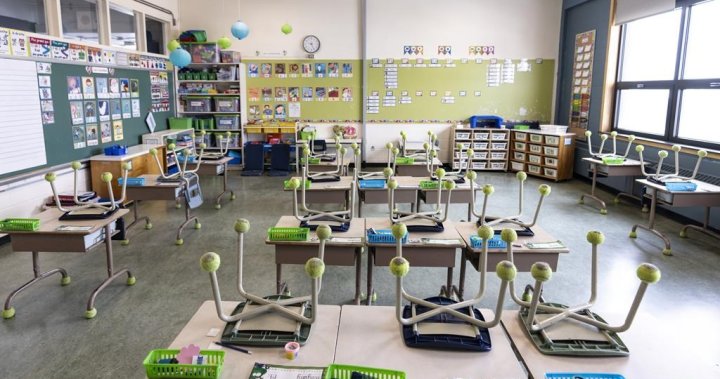In a surprising move that has educators cautiously optimistic, New Brunswick’s Progressive Conservative government has announced a $24 million increase to school operational budgets for the upcoming academic year, even as the province navigates broader fiscal constraints.
The funding boost, representing a 4.9% increase over last year’s allocation, comes at a critical time when many feared education might fall victim to budget tightening measures. Education Minister Bill Hogan confirmed the increase will directly benefit the province’s schools during a period when many government departments are being asked to find efficiencies.
“This commitment reflects our government’s recognition that investing in education today is essential for New Brunswick’s tomorrow,” Hogan told reporters at a press conference in Fredericton yesterday. “Despite fiscal challenges, we’ve prioritized classroom resources and direct student supports.”
The announcement has generated considerable interest within Canada’s education community, particularly as New Brunswick continues to face demographic challenges with declining enrollment in many rural districts. According to data from the Department of Education, the province’s student population has decreased by approximately 2.3% over the past five years, though needs for specialized services have increased substantially.
Dr. Katherine Wilson, an education policy analyst at the University of New Brunswick, suggests the increased funding may be strategic. “What we’re seeing is targeted investment in areas where the return is highest – early literacy, inclusive education supports, and technology infrastructure that enhances learning outcomes,” she explained in an interview with CO24.
The funding increase comes amid a complex political landscape in New Brunswick, where Premier Blaine Higgs’ government has been implementing budget restraint measures across many departments. Last month, the government announced a hiring freeze for non-essential positions and directed most departments to identify potential 5% operational reductions.
David MacMillan, president of the New Brunswick Teachers’ Association, expressed measured enthusiasm about the funding announcement. “While we welcome any increase to education funding, we’ll be watching closely to ensure these resources actually reach classrooms and aren’t diverted to administrative overhead,” MacMillan stated. “Teachers continue to report purchasing essential supplies out of their own pockets, which no funding announcement has yet fully addressed.”
The funding will be distributed across the province’s four anglophone and three francophone school districts, with allocations based on enrollment, geographical considerations, and specific programming needs. Rural schools, which often face higher per-student operational costs, will receive proportionally higher increases according to ministry officials.
Financial analysts observing provincial spending patterns note that education investments often yield economic benefits beyond immediate learning outcomes. “Education funding should be viewed through both social and economic lenses,” explains economist Jean Tremblay of the Atlantic Economic Council. “Research consistently shows that each dollar invested in quality education returns multiple dollars to the economy through improved workforce outcomes and reduced social service needs.”
Parent advocacy groups have responded positively to the announcement but emphasize that funding alone won’t address all challenges facing the education system. “We need to ensure this money translates into better classroom experiences, more support for diverse learning needs, and preparation for a rapidly changing job market,” said Sarah Collins, chair of the Provincial Parent Advisory Council.
As provincial budget deliberations continue, education stakeholders remain vigilant about potential impacts on other areas that affect student success, including healthcare, family support services, and youth programs. The interconnected nature of these services means that cuts in one area often create additional pressures in others.
As New Brunswick navigates these complex fiscal and educational priorities, the question remains: can the province maintain this increased investment in education while addressing other critical budget pressures, or will today’s funding boost become tomorrow’s difficult tradeoff?










